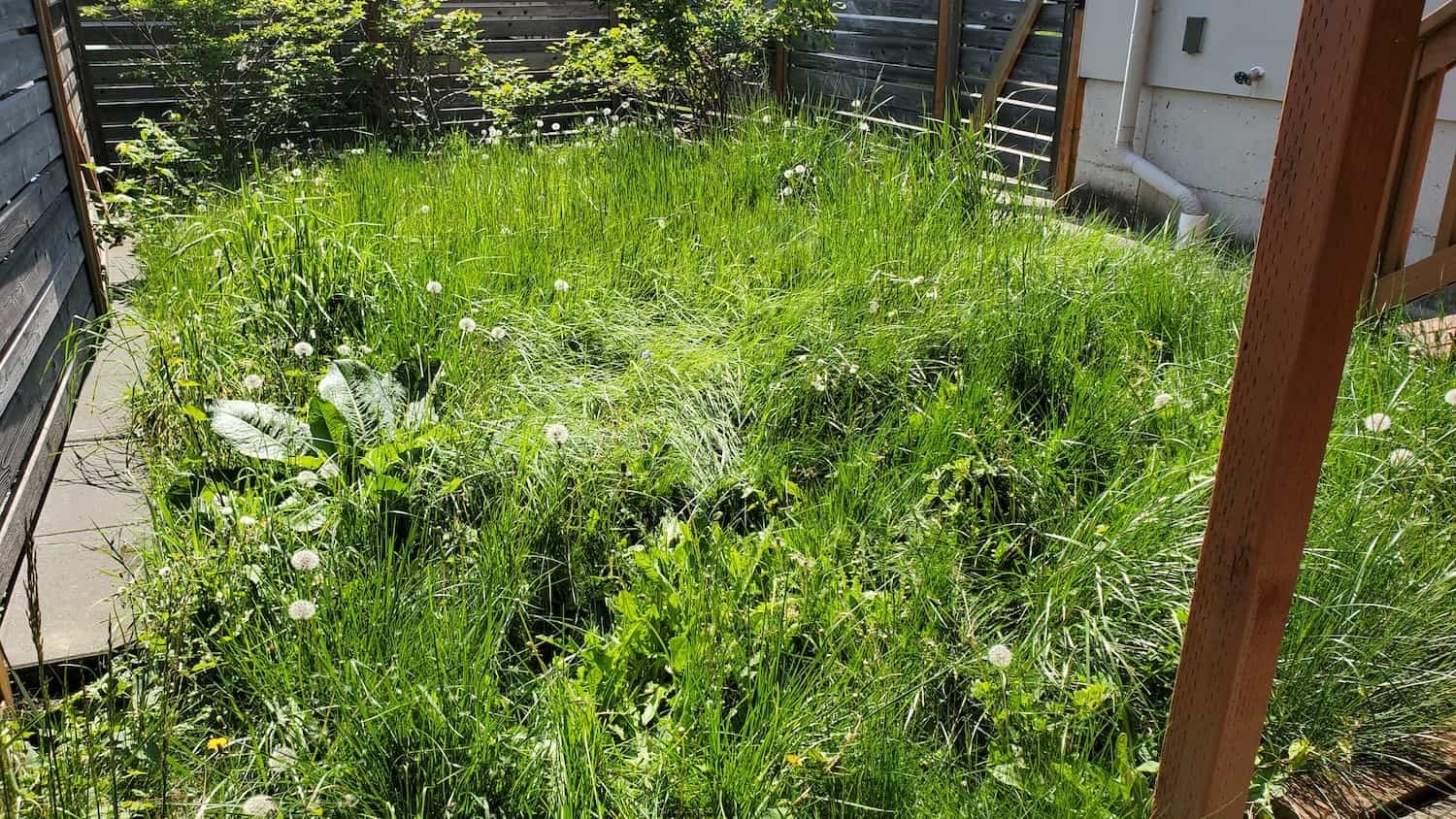West Seattle Salt & Vinegar Natural Treatment
Homeowner’s Issue
West Seattle yards face a specific set of problems: heavy winter rain, short dry summers, compacted glacial soils, shaded slopes, and constant moss and ivy pressure. Many properties near Alki and Lincoln Park sit on steep, gritty fills or older glacial till that drains poorly in winter and bakes in July. That pattern favors moss, chickweed, garlic mustard, and invasive ivy under canopy trees and along driveways. Salt and vinegar treatments are attractive because they’re chemical-free, but in West Seattle they require local judgment — salt raises soil salinity and can harm desirable plants if overused, while vinegar is fast but non-selective on contact.
HOAs and streetscape standards along Admiral and the California Ave corridor expect tidy beds and defined edges; untreated sidewalk cracks and gravel joints become eye sores quickly. Seattle’s seasonal water guidance limits excessive washing post-treatment, so timing matters: late spring and early fall are best for visible results while avoiding winter leaching. Over two decades working neighborhood-to-neighborhood here, we see the same mistakes—blanket spraying, ignoring root systems, and not addressing seed sources. Sustainable, targeted treatments combined with physical removal and mulch give the best, longest-lasting results for West Seattle homes.
Our Quality Service
We apply targeted salt + vinegar solutions only where appropriate, combined with mechanical removal and soil care. Work includes a site assessment, spot applications avoiding desirable plants, and follow-up bed repairs. Tools: pump sprayers, hand-tools, power edgers, mulchers, and pH-safe rinsing gear.
Local insight we apply:
- We adjust mixes and frequency for clay/loamy soils common in the area and avoid salty mixes on coastal-exposed properties.
- We schedule around Seattle’s rainfall patterns — spring and early fall windows give the best effect without unnecessary runoff.
- On slopes and terraces we prioritize spot treatment, hand-pulling, and mulching to reduce erosion and limit salt mobility.
Typical timeline: estimate within 48–72 hours, on-site work 1–2 hours for a small yard, up to a day for larger properties. Expect 7–21 days for treated weeds to brown and 4–6 weeks for re-checks. Benefits: safer outdoor spaces, cleaner curb appeal, reduced repeat visits, and lower long-term weed pressure when combined with mulch and barriers.
What’s Included
- Targeted assessment and written recommendation.
- Hand removal of large weeds, roots, and ivy where required.
- Spot-application of salt & vinegar mixes to cracks, joints, and isolated infestations.
- Cleanup, raking, and light edging.
Options / Upgrades:
- Mulch + fabric (recommended for beds to suppress regrowth).
- Organic compost top-dress to dilute any salt residues.
- Mechanical moss removal on patios and pavers.
- Haul-away vs. Green Bin composting for debris.
- Repeat follow-up visits (4–8 week cadence) for high-pressure sites.
Before & After / Expectations
Be honest: treatment causes visible browning and some dead material left to remove. There will be noise from edging and hand work; access to beds and hardscape should be clear of parked cars. We don’t promise permanent eradication with a single pass—this method is part of an integrated program.
Debris handling: we bag or green-bin most material; larger bulk removed as agreed. If your property borders dense ivy or seed sources, plan on 2–3 treatments and physical barriers or mulch to prevent re-infestation.
Care tips for West Seattle:
- Aim treatments in late spring or early fall when soil moisture and temperatures help desiccate roots.
- Avoid using salt treatments on salty spray-exposed coastal plantings and near shallow-rooted ornamentals.
- Expect elevated weed pressure after winter; plan a follow-up in April–May.
- Moss: hand-scrape shaded pavers and add coarse sand/grit rather than relying on salt.
FAQs
Q: Is this safe for pets and kids?
A: Yes — we use food-grade vinegar and controlled salt quantities. We advise keeping pets off treated areas until dry.
Q: Will the salt harm my soil long-term?
A: If overused, yes. We limit volumes, avoid repeated salt on the same spot, and recommend compost top-dress where salt contact occurred.
Q: How many visits will I need?
A: Most West Seattle properties need 1–3 targeted treatments per season plus mechanical removal for ivy and deep-rooted weeds.
Q: Do you use herbicides?
A: No. We use sustainable, non-herbicide methods only.
Q: What if my yard is on a slope or near a shoreline?
A: We use hand applications, mulch, and barriers to prevent runoff and salt migration. Coastal exposure reduces suitability for salt treatments.
Call to Action
West Seattle homeowners: book a free, local estimate and we’ll recommend the safest, most effective plan for your site—no hard-sell, just local expertise. Fast scheduling available for Admiral, Alki, Lincoln Park, and surrounding neighborhoods.
Email: neatandtidyseattle@gmail.com
Phone: 206-538-9344
Mon–Sun: 9am–6pm
Licensed • Bonded • Insured










